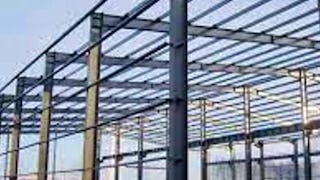The course provides a comprehensive overview of sustainability in construction, emphasizing the depletion of natural resources, global energy utilization, and challenges faced. It explores site selection parameters, the impact on the environment, and methods for preserving site resources. The integrated design approach and its benefits are discussed, along with the importance of basic amenities and the urban heat island effect. The course covers various aspects of building environmental considerations, focusing on heat transfer, thermal and visual comfort, and sustainable building practices. Heat transfer is explained through conduction, convection, and radiation, with a specific emphasis on heat gain in buildings, both internal and external. The discussion extends to thermal comfort, considering factors influencing human perception of heat and cold, and includes models for air-conditioned and non-air-conditioned spaces. Visual comfort is explored in terms of lighting design, covering daylighting strategies and artificial lighting parameters in compliance with building codes.



Comfort in Buildings
This course is part of Sustainable Design Practices in Building Design Specialization

Instructor: Subject Matter Expert
1,949 already enrolled
Included with 
(15 reviews)
Recommended experience
What you'll learn
Understand the fundamentals of sustainable construction and gain knowledge on sustainable site selection and preservation of site resources.
Evaluate the heat transfer through building elements and provide solution for avoiding heat ingress in the buildings.
Understand the key parameters of psychrometry, thermal comfort and analyze thermal comfort models
Details to know

Add to your LinkedIn profile
4 assignments
See how employees at top companies are mastering in-demand skills

Build your subject-matter expertise
- Learn new concepts from industry experts
- Gain a foundational understanding of a subject or tool
- Develop job-relevant skills with hands-on projects
- Earn a shareable career certificate


Earn a career certificate
Add this credential to your LinkedIn profile, resume, or CV
Share it on social media and in your performance review

There are 4 modules in this course
The module offers a comprehensive overview of sustainability, highlighting its significance and the challenges encountered in the field of construction. It delves into the depletion of natural resources resulting from human activities, analyzes global energy consumption across various sectors, and anticipates future energy demands in India, all while exploring diverse energy sources. The discussion encompasses criteria for site selection, emphasizing its importance and examining various types of sites and their environmental impacts. The module also imparts knowledge on strategies for preserving site resources such as topsoil, water bodies, and plantations. Additionally, it provides a concise introduction to the integrated design approach, aligning project requirements with its associated benefits. The importance of basic amenities in proximity to buildings and an exploration of the urban heat island effect are also included in the discourse.
What's included
12 videos1 reading1 assignment
Heat transfer involves the exchange of thermal energy between two distinct systems. The principles of thermodynamics elucidate the modes of heat transfer, namely conduction, convection, and radiation. This module focusing on heat transfer within buildings provides an overview of internal and external heat gain. External heat gain, originating from building components like roofs, walls, fenestration, as well as through ventilation and air leakage, is thoroughly explained, accompanied by examples and precise calculations of the heat absorbed by these elements. Additionally, the reasons behind internal heat gain in a building are explored, along with the determination of the heating and cooling loads necessary to condition a space for the occupants' comfort.
What's included
16 videos1 assignment
Thermal comfort pertains to the subjective sensation experienced by the human body resulting from the influence of heat and cold sources in the surrounding environment. This module commences with a fundamental introduction to thermal comfort, elucidating the key parameters that shape its perception. The module also explores factors contributing to local thermal discomfort. Psychrometry, the study of thermodynamic properties of air and water vapor mixtures, is comprehensively explained using a psychrometric chart. The application of psychrometry in processes such as heating, cooling, humidification, and dehumidification is detailed, accompanied by illustrative examples. Thermal comfort models are examined for both air-conditioned and non-air-conditioned spaces.
What's included
9 videos1 assignment
Visual comfort encompasses an individual's response to the lighting conditions within a space, characterized by adequate illumination, contrast, color, and the presence or absence of glare. This module on visual comfort introduces the fundamentals of lighting and the terminology employed in lighting design. Strategies for both daylighting and artificial lighting within a building are elucidated. The module delves into the aspects of daylighting for buildings, offering a detailed explanation of daylighting control strategies. Additionally, it outlines the various types of artificial lighting based on tasks. The design of artificial lighting is explored, and the necessary parameters, in accordance with the provisions outlined in the National Building Code (NBC), 2016, and the Energy Conservation Building Code (ECBC), are elaborated upon with the aid of examples.
What's included
14 videos1 assignment
Instructor

Offered by
Recommended if you're interested in Environmental Science and Sustainability


Parsons School of Design, The New School


Eindhoven University of Technology


L&T EduTech
Why people choose Coursera for their career





Open new doors with Coursera Plus
Unlimited access to 10,000+ world-class courses, hands-on projects, and job-ready certificate programs - all included in your subscription
Advance your career with an online degree
Earn a degree from world-class universities - 100% online
Join over 3,400 global companies that choose Coursera for Business
Upskill your employees to excel in the digital economy
Frequently asked questions
Access to lectures and assignments depends on your type of enrollment. If you take a course in audit mode, you will be able to see most course materials for free. To access graded assignments and to earn a Certificate, you will need to purchase the Certificate experience, during or after your audit. If you don't see the audit option:
The course may not offer an audit option. You can try a Free Trial instead, or apply for Financial Aid.
The course may offer 'Full Course, No Certificate' instead. This option lets you see all course materials, submit required assessments, and get a final grade. This also means that you will not be able to purchase a Certificate experience.
When you enroll in the course, you get access to all of the courses in the Specialization, and you earn a certificate when you complete the work. Your electronic Certificate will be added to your Accomplishments page - from there, you can print your Certificate or add it to your LinkedIn profile. If you only want to read and view the course content, you can audit the course for free.
If you subscribed, you get a 7-day free trial during which you can cancel at no penalty. After that, we don’t give refunds, but you can cancel your subscription at any time. See our full refund policy.
More questions
Financial aid available,


